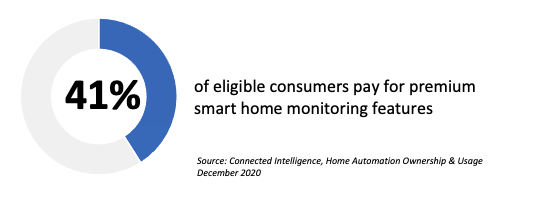
Does It Really Matter?
The Connected Home Over IP (CHIP) alliance now has a new name – Matter. In order to receive Matter’s certification, the product needs to adopt the new royalty-free standard that makes it compatible with Alexa, HomeKit, and Google Assistant. Compatible accessories will have setup codes to let users easily (hopefully) pair them on any platform. Every device certified by the alliance will have a unique logo to indicate its compatibility. The first devices certified by the alliance are expected to hit stores in 2021. At the same time as the Matter rebrand, the Zigbee Alliance has a new name too – the Connectivity Standards Alliance, and a broadened scope.
The NPD Take:
- We can expect a smattering of products across a range of devices from light bulbs to doorbells and speakers. The rebranding is much more consumer friendly, and the logo will help make it easier for consumers to tell which products work with the unified system. Its success will ultimately depend on manufacturer uptake, but companies like Signify say they will release a software update in the coming months to make all of its past and present products compatible. Why does Matter matter for manufacturers? Well, while it will be easier to focus on sending out great hardware…it also means that consumers will be less tied to those manufacturers’ apps, and therefore not sharing valuable customer data, and potentially less tied into the services ecosystem these manufacturers may be trying to build.
The Price is Right?
Competition for consumers’ dollars in the security camera market is fierce and the grip continues to tighten on the amount of money that can be squeezed from hardware sales alone, as low cost brands continue to heat up the pricing wars. The OG of low-cost cameras – Wyze – has been forced to increase its pricing, citing the increasing cost of components. The effective price of the Wyze Cam v3 is going up by just $3 (and the Video Doorbell will go up by $10), as Wyze is now including shipping in the base price. Nevertheless, these price increases speak to the struggle to survive on hardware sales alone. Canary is now throwing in its security cameras for free, so long as consumers sign up for its monthly Premium Service, with a 24 month commitment. In Arlo’s recent quarterly earnings presentation, the company focused much of its conversations on pivoting to become a services-focused business to enable the path to more predictability and profitability.
The NPD Take:
- In 2020, brands with the biggest dollar share gains were often the same brands that have lower than average pricing – particularly for segments like indoor cameras. This dynamic is continuing as we move into 2021, and as lower cost products become more the norm, the reliance on service revenue will become even more key.
New Echos to Show
Amazon has introduced an upgraded Echo Show 8 and Echo Show 5, along with some new functionality to make smart home routines more…routine. The Echo Show 8 now has a 13MP camera (with privacy shutter) that automatically pans and zooms during video calls to keep everyone centered in the frame, while the Echo Show 5 camera is doubling in resolution to 2MP. Improvements to the processing power and software now enable the camera to detect if a human has walked into the room to trigger routines like turning on the lights. Coming soon is Alexa’s ability to recognize sounds (crying babies, barking dogs, snoring adults..) and set routines into action based on those noises.
The NPD Take:
- With the camera and video call enhancements, Amazon is clearly riding the momentum inspired by the pandemic to stay in touch virtually. For privacy buffs, Amazon emphasizes that the camera’s ability to detect humans is an opt-in only feature. As for Alexa’s ability to trigger routines based on certain noises it hears…well that inherently would mean Alexa would always have to be listening.